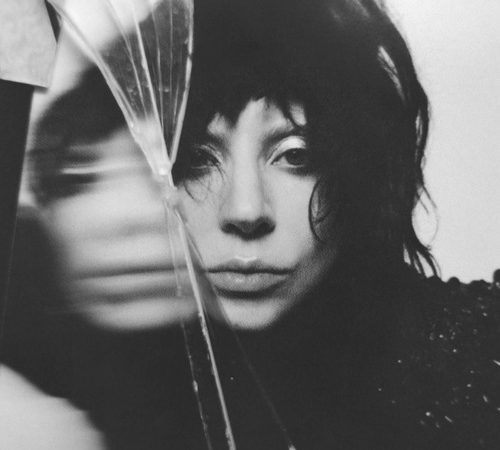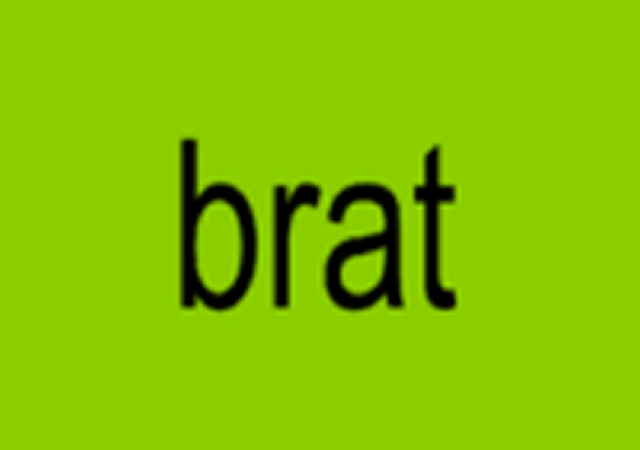Squid’s ‘Bright Green Field’ confronts a world where reality and what we perceive are distorted.
9.0
Credit: Warp Records / Squid
Our world goes further through the looking glass each day; Squid’s debut LP describes exactly what that feels like.
It’s our first 9.0/10 of the year baby!
Narratives are key to human existence. In order to keep our precious little minds from exploding under the sheer weight of knowing how unexplainable so much of the world is, we need narratives.
In the 20th century, we had plenty of these. Nazis are bad, the Allies are good. Communism is a threat, Capitalism is our saviour. The ideal of a nuclear family, owning a home and owning a car was the ideal. Subscribing to these was a ticket to slotting in and being at peace with the world.
But we aren’t in that world any more. Right and left seem less and less understandable by the day. We no longer have a defined bad guy country to blame all of our ills on. Social media allows you to vicariously live in a bubble of agreement, all of it telling you what you already believe back to you.
Narratives are no longer nationwide; they are narrow, customisable, totally unique to everyone. The true nature of what our world really thinks any more is impossible to ascertain, leaving only the comforting self-assurance that your way of seeing things must be correct to fill the void.
“Squid’s depiction of an in-definable world where the borders of reality and what we perceive to be reality are impossible to know…is [an] in-touch capturing of the world”
But what about those of us who don’t want to subscribe to this? What happens when you drop out of this way of thinking? Squid don’t have an answer, but they do know what it feels like.
20 years ago, technology enamoured us with the idea that we could “wake up” from the system like Neo and fight back, clad in black leather and toting MP5s. Sadly, that remains a fantasy. Squid’s depiction of an in-definable world where the borders of reality and what we perceive to be reality are no longer possible to know, however, is a far more in-touch capturing of the world, and in turn is what drives much of Bright Green Field.
So much of Britain’s Nu-New Wave over the last 5 years has tapped into an underlying sense of dread at the state of things, lamenting against political turmoil, social division and the re-drawing of identities based on culture. But no band yet has tried to reimagine it – the aim has often been to be to find a sense of reality in a groundless world. Squid played into this beautifully on their previous outing Town Centre, barely 20 minutes long yet restlessly, perfectly encapsulating urban dross.
Now, however, their erratic, deliberate style demands something more visionary. How about an album whose record sleeve is adorned with images generated using ‘deep image reconstruction from human brain activity‘? Er…yeah, I guess, and thankfully the handy art booklet that came with certain pre-order versions helps to explain how the fuck any of that works.
“The music is much the same. Indecisive, jittery, jumping from the grooviest of beats to the loneliest of ambience at a moment’s notice.”
Bright Green Field is the feeling of dreaming whilst still conscious. It’s tormented by its own thoughts, clawing for mental respite, dogged by the dystopian horrors that permeate its mind. Distinction between what is real and what isn’t have disappeared; much like the deep image reconstruction artwork it showcases, the world is a picture whose sharp lines are being smudged, and whose colours are blurring into one another.
The music is much the same. Indecisive, jittery, jumping from the grooviest of beats to the loneliest of ambience at a moment’s notice. Hints of Kraftwerk, Bjork, Talking Heads, Radiohead, PJ Harvey, Modest Mouse, prog rock, acid jazz and a billion other sounds fade in and out with infallible quality, with none being allowed to rule the record. So much is going on, so much of it seemingly intended to create disorientation, and all of it delivered with an exquisite, original direction.
The band have an amazing sense of resolution; for every weird section they throw your way, they always ensure to tie it up with deft craft. Better still, all of it feels deliberate and considered – the squelchy trill of those Jeff Wayne’s War of the Worlds-esque synths that appear in the middle of ‘Narrator’ draw some appropriate comparisons between what both records are about.
“Its view seems to be that all the typical focus points of our grievances…are no longer the cause of ‘where we are’, but that rather they are products of the system that now rules our world.”
Art Punk has so often been used to extend the ability of Punk to condense the feeling of the times into raucous, 2 minute thrash-outs, and this record is no doubt one of the most invigorating new takes on the style in eons. Where Punk has previously relied on political events and popular figures – real, tangible objects – to hinge its anger around, Bright Green Field confronts the terrifying reality that we are no longer living in that kind of world.
Its view seems to be that all the typical focus points of our grievances – the Convserative party, the tabloids, corporations, advertising, populist nationalism, social media, and on it goes – are no longer the cause of ‘where we are’, but that rather they are products of the system that now rules our world. A symbiotic relationship that distorts what is real and what is perceived, where the conventions that made sense even just 5 or 10 years ago can no longer apply, where everything is spinning out of control yet also assuring itself more than ever that nothing can be changed. The perceived world and reality have reached the point where they are practically the same. (My apologies if I’m sounding too much like an Adam Curtis documentary or a film student reveling about Andrei Tarkovsky’s Stalker.)
Of all the themes the album grapples with, its most political moment is to be found on ‘Pamphlets’, a firm reminder of the dangers of flag worship, right wing propaganda, and the comfort of never reading anything other than the Daily Express articles that populate yer Facebook feeds. Like a runaway train, the track careens the whole record into a tumultuous, instant crash-finish. Singer-dummer Ollie Judge’s shouty vocals on the rest of the record, so suited to capturing the madness of the world we’re in, are balanced here with the tender melody with which he sings “I don’t go outside”, offering almost heartbreaking sadness.
It’s the record’s extra-politicalness, however, that makes it so astonishing. Squid aren’t advocating for a different way to run society or championing a different ideology; rather, they suggest that that is no longer possible, that all that can be done now is to simply observe the spiralling chaos and scream along for the ride. As sad as that is, the record’s weirdness drums home the defining feeling of our times – no one really knows what we’re supposed to do.
“…the record’s weirdness drums home the defining feeling of our times – no one really knows what we’re supposed to do.”
Our world today is without a unifying narrative. Nothing is making sense anymore, and the whirling sense of non-sense is mimicked by the band’s ever-changing sound palette. The way in which some instruments, vocal effects and even entire motifs only appear for a brief moment on one song before disappearing is perhaps the most accurate musical translation of this yet written. Dropping out and fighting back against the system is a fleeting concept – refusing to conform is an acceptance that you will be left in limbo.
Squid’s debut EP, Town Centre, was a remarkable record, one that I was fooled into thinking would be too great a burst of originality to match. And to be honest, I was okay with that. But Bright Green Field has achieved something so much greater than the outlay given in their prior material. This is undoubtedly the most forward-thinking Post Punk/Art Punk/whatever-punk record released in living memory, reversing the search for grounding that its contemporaries seek and instead embracing chaos. Its unrelenting, urgent nature, as if finding it impossible not to just scream about what on earth the state of things has become, is a mesmerising, totally compelling force.
It’s so easy to feel antagonistic towards albums that try to be too complicated, try to show off too many influences, overselling and coming up short. But that simply isn’t the case here. This is a state-of-the-nation address that suggests that what we even consider to be our nation can no longer be defined. Equal parts terrifying and groovy, raucous and depressive, defined and off-kilter; it’s weirdness is a self-fulfilling prophecy that only proves its own point.
Score: 9.0/10






